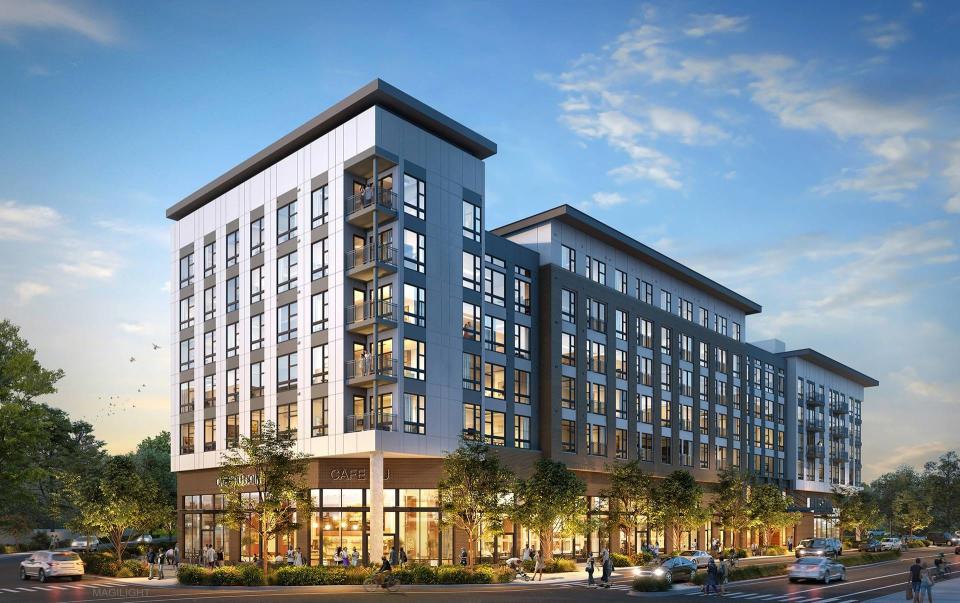These researchers will look at how RI could create a state housing developer
Rhode Island has chosen New York University researchers to study whether to create a state housing development arm and, if so, how best to do it.
NYU's Furman Center for Real Estate and Urban Policy was hired over two other bidders to do the six-month study, which will examine different public-sector models used across the country and world to build new affordable housing.
Among the places the Furman Center is expected to study are Montgomery County, Maryland, Singapore and Finland, Housing Secretary Stefan Pryor told The Journal last week.
"We're asking [the Furman Center] to analyze the efficacy of these models and the applicability of such models to Rhode Island," Pryor said.
RI program could be based on Maryland model
The idea of a state developer was first floated in 2022 when state lawmakers included $10 million for unspecified public housing projects in the state budget. House Speaker K. Joseph Shekarchi and Pryor have both expressed interest in how Montgomery County's Housing Opportunity Commission has been building mixed-income apartment buildings using a revolving fund of public dollars.
The initial $10 million Rhode Island budgeted for public housing has been allocated to local housing authorities, and the state Housing Department opted to study the public developer concept before committing any money to the idea.
If the state decides to try its own take on what Montgomery County did, funding would most likely come from a $100 million housing bond Gov. Dan McKee is proposing voters approve in November .
Pryor said the Furman Center has been asked to provide an interim report on its public-developer findings in April or May, before lawmakers finalize the state budget.
Pryor visited Montgomery County, Maryland, which is just north of Washington, D.C., in November to see what's been built there and found one the developments there "impressive."
The "Montgomery County model," which has drawn attention in the national media, features buildings with a mix of apartments rented at market rates and below-market rates so tenants paying higher rents subsidize those paying less.

Because the public developer provides a big chunk of the money needed to build the apartments, less goes to profits for investors and middle men. Those profits are instead plowed back into the revolving fund to pay for other new buildings.
"Because a public sector agency is carrying out the work, the funding that would otherwise be destined for a private developer in the form of fees and returns can then be [for] housing development," Pryor said.
The Montgomery County Housing Opportunity Commission can also make equity investments in housing projects that agree to include affordable units.
The public developer, at least in Maryland, also doesn't pay property taxes, allowing savings to be passed on to tenants. But it is unclear if Rhode Island municipalities would be go along with a similar arrangement unless the state made them whole.
More: Will RI be the first state to create a public housing developer? That plan is up in the air.
Pryor noted that if Rhode Island decides to establish a public developer, it can take parts of what Montgomery County and other public agencies did without having to copy any one system entirely.
Interest in a new method of building affordable housing has increased as the cost of construction for traditional privately-built projects has soared. The average cost for nonprofit developers building new below-market rate apartments has risen to around $500,000 per unit.
The business-backed Rhode Island Public Expenditure Council estimates that at current costs, a $100 million state investment in affordable housing would produce around 830 new apartments.
The Furman Center contract has not been finalized yet, Pryor said, but is expected to cost between $85,000 and $100,000.
Daniel Denvir, co-chairman of Reclaim Rhode Island, the group that has been pushing for a state developer, called on state leaders to pass a large housing bond this year with a "substantial portion" dedicated to public housing and public development.
“We salute Secretary Pryor for actively exploring public housing development and look forward to the Furman Center not only testing the viability of the Montgomery County model but also analyzing the wide variety of innovative methods that public housing authorities can utilize to create the apartments we so desperately need," Denvir said in an email.
This article originally appeared on The Providence Journal: RI housing officials studying a public housing developer model

